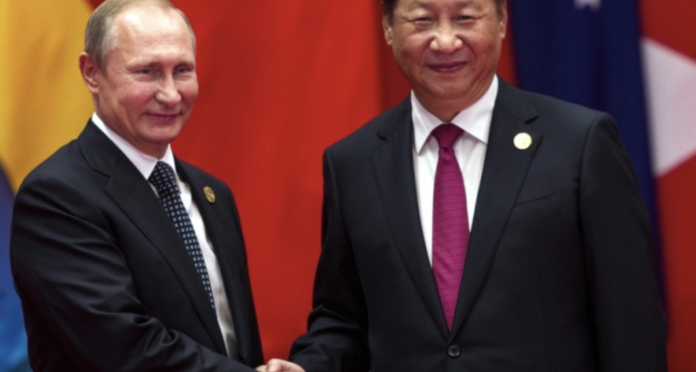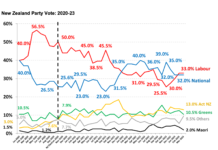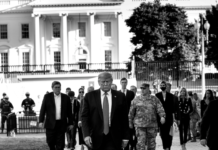In recent weeks, the frontline in Ukraine has stabilised, winter’s cold slowing down activity as we wait for the ground to freeze and movement to return. Although both sides continue to make small attacks, shell each other and work towards key local objectives the frontline is relatively stable. Strategically, the Russian campaign to freeze Ukraine into submission continues supported by imported Iranian drones. Ukraine struck back hard; bombing Russian airfields deep in their enemy’s hinterland. However, Ukraine’s main objective at this time is maintaining international support including a couple of significant wins; the deployment of advanced Patriot air defence missiles and that last week Doug Bush, Assistant United States Secretary of Defence’s announcement that the United States aiming to invest $ 600 million in industry investment to increase the production of ammunition.
The mobilisation of the American military industrial complex to support Ukraine, sounds the death knell of Russia’s campaign. Russia’s economy only slightly larger than Australia’s at the start of the war; and now damaged by ten months of crippling sanctions and emigration of capital and of the best and brightest young minds from Russia to avoid the war is never going to be able to match American production of ammunition, let alone NATO’s combined industrial might. The war in Ukraine will continue though and as it slows down over the winter it is a good time to look for the lessons that we can learn from the conflict, here in the Pacific.
The Pacific region is a misunderstood and under-analysed region; on the frontline of both Sino-United States competition and of managing climate change. A region full of potential conflict; from small ‘brush fire’ wars to a potential super power conflict it is an area that needs to study and appreciate the lessons of Ukraine. This article summarises some of my thoughts about the lessons we can draw in the Pacific from Ukraine’s experience.
Defence policy includes moral considerations, not just economic ones
Going to war is always a moral decision; and the war in Ukraine demonstrates that defence policy and alliance partnerships must be driven by a clear philosophical and moral vision of the type of world that we want to live in rather than by economic considerations. In Ukraine, the short-term economically sensible decision is to end the war quickly, to appease Putin with a face-saving ‘victory’ and get back to business-as-usual as quickly as possible. Cheap Russian oil and gas will continue to flow into Europe and the world’s economy will quickly recover.
Fortunately, Ukraine is led by an exceptional leader able to galvanise the support of both his own nation and the world. If the Russian paratroopers that landed 400 metres from President Zelenskyy’s house on 24 February 2022 had captured him; or he was a lesser leader and had accepted a United States evacuation offer then history may have recorded 2022 as the year Ukraine was ‘folded back’ into Russia.
Secondly, Ukraine is fortunate that since 2014 the United States and United Kingdom have been supporting the development of a strong and well-prepared military. Commitments of many billions of dollars and pounds; not to protect a trading partner but rather to reinforce Europe’s collective security and protect a threatened state. Both nations rushed advanced anti-tank and anti-aircraft missiles into Ukraine immediately before the Russian invasion; a step that probably saved Ukraine because it stopped the initial invasion and gave Ukraine time to rally support for a longer war.
Speaking in Auckland, New Zealand earlier this year military theorist David Kilcullen summed up the difficulty that many nations of the Pacific region face. Sino-American competition means that many countries face a difficult conundrum; created by political competition between many country’s largest trading partner, China and the United States the region’s dominant military power. Competition between these powers is often over-hyped, China is significantly weaker than the United States it lacks a strong ‘blue water’ navy, its military is generations behind the United States in capability and strategically its economy has inherent weaknesses. You Tube analyst Peter Zeihan points out the United States Navy is China’s most important economic asset because without the maritime ‘Pax Americana’ protecting oil routes out of the Persian Gulf China’s economy would collapse.
However, there is competition and although it is unlikely to evolve into direct ‘kinetic’ conflict between the United States and China the spectrum of war is changing and there are likely to be larger ‘proxy wars’ like we are seeing in Ukraine. And; the nations of the Pacific need to remember the lessons of Ukraine and ensure that moral considerations underpin defence policy and support the international rule of law against aggression; regardless of the short-term economic cost.
Conventional war may be more likely
The war in Ukraine seems to indicate that the spectrum of war is changing, that there is a larger remit for conventional combat before a nuclear exchange than was predicted before this war. The way that the world reacted to Russia’s nuclear rhetoric demonstrated that the West’s liberal democracies, non-Western nations and autocratic regimes are all united in not tolerating the use of nuclear weapons. Even small tactical nuclear weapons are abhorrent and the thought of their use in Ukraine united China and the United States to manage Putin’s rhetoric.
Although the intentions are good, I believe this trend has an unintended consequence. Traditional nuclear deterrence rested on the assumption that conventional war was a ‘trip wire’ and that nuclear armed states or alliances needed only enough conventional force to be able to stop an initial attack. Conventional forces were only required to ‘hold the line’ long enough for their political masters to issue the nuclear ultimatum and the threat of Mutually Assured Destruction (MAD) being invoked. Ukraine’s war has blurred this model, the world community willing to accept a large conventional war in Europe without threats of nuclear escalation to end the conflict.
Extrapolating from this situation to the Pacific region, we can infer that a Chinese invasion of Taiwan is highly likely to remain conventional rather than be escalated into a nuclear conflict. In turn making it a less risky option for the major powers involved. Likewise at a range of other tension points it is more likely that large proxy wars will be tolerated. Would the United States use nuclear weapons to defend South Korea from a North Korean attack? It is highly unlikely, even if North Korea used nuclear weapons. The wider world community simply would not tolerate this action, so instead it seems that we are likely to see a return to larger conventional wars. Essentially, this war seems to be expanding the conventional war-fighting spectrum and making it less risky to try military ‘adventures’ because escalation to nuclear MAD is unlikely.
Further, Ukraine is teaching us about the expanding tolerance for ‘irregular’ war whether it is contracted armies like Wagner Group, private armies like the Chechens or militias like the Azov battalion. This war is characterised by a range of irregular forces that are not subject to normal military conventions or controls. In the Pacific, we can see the same trend with both the United States and China controlling large networks of private military companies, large enough to conduct conventional military operations like Wagner Group and Kadyrov’s Chechens. And; we certainly have historic examples of private companies fighting conventional wars against governments. Even as recently as the 1990’s activities of mercenaries in Africa have included operations with all the hallmarks of conventional war; except laws of armed conflict. In my opinion, a trend towards irregular forces increases the likelihood of war because it allows large nations to fund military operations by contractors or irregular private armies operating with a level of deniability that lowers the direct risk of a military adventure to its sponsoring nation. This in turn incentivises proxy war and armed interventions similar to Putin’s army of ‘green men’ that invaded Crimea in 2014. Hybrid strategies that nations in the Pacific will need the flexibility and conventional military resources to counter in the future.
Nations need to be prepared for conventional land war
When the Soviet Union collapsed in 1989, the world’s liberal democracies told themselves that the age of conventional war was over. The United States, NATO and its allies concentrated on peace-keeping and chasing terrorists their armies becoming special forces heavy and losing tanks and artillery. However, the Ukrainian War indicates that there is an evolving place in the spectrum of war for larger near-peer conflicts. Perhaps even direct conflict between legitimate governments and irregular private armies supported by a major power.
A feature of the Pacific region is its maritime nature; it is an operational area dominated by sea and airpower. Fighting on the sea and in the air is relatively contained. Ships and aircraft are expensive and require highly trained personnel to operate so are relatively rare and are able to be controlled easily. However, ships and aircraft need bases; and bases are on land so any naval conflict requires a land strategy. Land war in contrast is risky; it involves larger numbers of people and can be fought by irregular, less controllable forces and impacts directly on civilians. This type of operational environment could also lead to long, slow burning land conflicts because securing bases may require long-term and possibly intense security operations.
Conflict in the Pacific region is about securing land for naval and air bases so we are likely to see future conflicts over areas that are good bases. Solomon Islands is a strategically important area because it has large areas of flat land for airfields and good harbours. Solomon Island’s recent ‘security arrangement’ with China creates a complex risk for Australia because the islands can be developed to provide naval and air bases that threaten Australia and its interests in the Pacific Ocean and Coral Sea.
And; across the Pacific region there are a range of unstable areas providing opportunities for major powers to win air or naval bases via proxies. Indonesia for instance is an enormous country with many different ethnic groups spread across a vast archipelago of islands; large and small. A number of independence movements are currently active. A recent example of a nation breaking away from Indonesia is Timor Leste. It is likely others will follow, already an active West Papuan resistance movement exists and across the region countless other ethnic groups exist providing fertile ground for politicking that may evolve into war-fighting; particularly if as Ukraine indicates conventional war is an option that could achieve success.
The lesson for nations in the Pacific region is that conventional land forces are required, soldiers able to fight sometimes for protracted periods. So these forces need to be sustainable; with the trained manpower and logistics to operate for long periods. Even a small conflict, would stretch the logistics resources of most nations in the region.
Commit to collective security
A key lesson for the Pacific region is that Ukraine is still a country because two nations committed to support it; without the Javelin, NLAW and Stinger missiles rushed to Ukraine in early-February by the United Kingdom and United States it is likely that Ukraine’s defences would have been quickly swamped by Russia and defeated. If Ukraine was defeated immediately there would have been a powerful argument that Europe should accept the new status quo and ‘move on’.
Russia’s initial defeat provided time to win NATO’s commitment and without that support Russia would have won the attritional slogging match that has developed. Instead, with the support of a multitude of nations working together collectively; providing weapons, training and resources Ukraine has held its ground and is now poised to defeat Russia. However, in the first days of the war it was a close-run thing; and potential aggressors may take the lesson that Russia’s strategy was sound but its execution flawed and that if a quick military victory had been achieved Putin would have achieved his goals.
In the Pacific region a range of collective security arrangements exist and their importance has been firmly underlined by the war in Ukraine. Too often analysis is simplistic and China is painted as the region’s sole aggressor. An interpretation that neglects the range of other potential tensions and reasons for war that exist within the Pacific region. Ukraine demonstrates the importance of deterring any potential aggressor through robust collective security arrangements. Importantly, it reminds small nations that the cost of commitments to collective security whether in ‘blood or treasure’ pay significant dividends.
Further, this reinforces the need for well-prepared and equipped land forces that can be deployed quickly and sustained. Deployment of military forces quickly demonstrates resolve and willingness to fight, the only realistic deterrent to aggression. Being able to deploy land forces that can work inter-operably with allies; too secure bases for maritime and air operations is a vital element of collective security in the Pacific region and reinforces the need to prepare for conventional war-fighting on land.
In summary, Ukraine’s frontline being stable provides a good opportunity for reflection and thought about other parts of the world. Pacific nations can learn great deal from the war in the Europe, lessons that if learnt well may help us to prevent future wars.
Ben Morgan is a tired Gen X interested in international politics. He is TDB’s Military analyst.





The PRC no limits partnership with the Russians should be lesson enough. End Hanazi expansionism now.
Be interesting if the likes of nathan and antforce62 actually presented their interpretation of the geopolitics involved.
Easier to shoot the messenger than to answer, in geopolitical terms, the questions raised?
I don’t think China has the naval capacity (has the ship numbers but not ships with range to cover, supply and hold the Pacific ocean).
China is more interested in land colonisation. Central Asia, Siberia and India are more the likely avenue for Chinese “sphere of influence”. Possibly southward through Veitnam?
Going to be interesting to see where the latest China versus India infractions will lead.
https://www.aljazeera.com/news/2022/12/15/india-test-fires-agni-v-missile-amid-border-tensions-with-china
Why does China resent India? India is fast replacing China as the world’s “factory.”
Meh. @ gerrit fyi.
Russell Brand via YouTube.
Here is my conversation with Professor Jeffery Sachs, we discussed many controversial topics like Ukraine war, Media Lies & Wuhan Lab Leak.
https://youtu.be/wfXIJd5J_VA
Also here.
https://rumble.com/v1r3zay-jeffrey-sa…
We DO TRY and post counter thoughts/opinions/arguements/facts, BUT we are often ‘banned-stopped’ by this site.
So absent comments is NOT PROOF of no counter arguement.
https://www.youtube.com/watch?v=LZzdU6JtaRM
My comment intro was aimed at the likes of Antforce62 and the now deleted nathan posts.
I watched your link and like the pro Ukrainian links, needs to be read with a healthy dose of skepticism. Reading the comments on your link is a bit like reading Zero Hedge comments. People that hate the USA seem the be OK with Russian (and China) imperialism.
Geopolitically what is Russia trying to achieve? The physical destruction of the Ukraine and to what end? Install a puppet regime like Belarus? Ukraine rebuilding costs, I would suggest, are beyond what Russia can afford. Russia, outside Moscow and St Petersburg, is in a worse state than Ukraine is currently.
The two main centres reflect a Potekim principle.
Hiding general neglect and underfunded societal infrastructure in the rest of Russia.
Plainly shown in the recent military draft. The poorest areas are harvested first. Very few from Moscow or St Peterburg were drafted.
https://www.reuters.com/world/europe/poor-rural-buryatia-russias-partial-mobilisation-hits-hard-2022-09-23/
The you will have inter generational hatred by the Ukrainian people of Russians.
Why Russia has done what it did and what is it’s ‘aims’.
http://www.informationclearinghouse.info/57388.htm
Bollocks
Spoken like someone who has never dealt with Indian manufacturing.
‘ ensure that moral considerations underpin defence policy and support the international rule of law against aggression; ‘
A very fine….principle.
‘ ensure that moral considerations underpin defence policy and support the international rule of law against aggression; ‘
Western morality, ,,, is on par with Hitlers morality. https://caitlinjohnstone.com/2022/12/14/biden-kills-senate-resolution-to-end-yemen-genocide/ ,,,,,,,,”It’s hard to think of a word to describe all this besides “evil”. If intervening to ensure the continued mass starvation of children and mass military slaughter of civilians is not evil, then nothing is evil. It’s actually hard to think of anything more evil”
“It’s safe to say that in a nation which serves as the hub of an empire that’s held together with endless violence and the threat thereof, anyone who ascends to a certain level of power in any party is going to have to be a servant of mass military slaughter to some extent. That’s why efforts to save Yemen keep getting stonewalled, that’s why Biden’s promise to end that war turned out to be a lie, that’s why the US war machine keeps expanding, that’s why aggressions keep ramping up against Russia and China, and it just might end up being why the human species went the way of the dinosaur.”
there is no morality in diplomacy..there’s plenty of virtue signalling but that’s a different thing….
Thanks for another thoughtful commentary, Ben. It’s good that you’re referencing Peter Zeihan because his past predictions have so far been quite accurate.
A few thoughts:
Firstly, China will not and cannot invade Taiwan. Its previous threats were just bluster in the run up to the party conference to make Xi look tough and get reelected. It won’t invade for the following reasons:
> It would lose a million men in the Straits of Formosa trying to get there. Men born into one child families of ‘Tiger Moms’.
> They would face instant trade sanctions from the West that would shut their economy. Unlike Russia, China is not a major minerals exporter, so we can make do without their $2 shop trinkets for a while.
> China is totally reliant on oil, coal and gas imports. Given US superiority at sea, we’d starve them to death in a month by blockading their imports.
Secondly, I will go one further regarding China. I think that it will collapse in a fashion similar to the Soviet Union. It’s already played its cards and lost. It faces so many headwinds now that I don’t see the existing power structures staying in place for more than a few more years:
> As Peter Zeihan points out, it is facing the worst case of demographic collapse in the next 20 years with its population HALVING by 2035. It’s hard to comprehend just what a disaster this will be for them.
> Its economy is a giant Ponzi scheme with bad debts everywhere. The recent oppressive behaviour of the CCP has killed off what innovative private industry it once had.
> China is now an expensive and unproductive place to manufacture, so western companies are slowly divesting and moving to India, SE Asia and Mexico.
> The Biden administration has quietly adopted Trump’s China policy. It has slammed the door to more tech transfer and the latest chip plants are being built in the USA. They’ve been frozen out.
> Expect to see more protests…
Lastly, regarding the lessons learned from Ukraine, I would add two points:
>The West needs to maintain higher stocks of conventional weapons and ammo and have the ability to rapidly turn on capacity at a moment’s notice.
>If you have last year’s technology you will lose. Putin’s tanks are a great example. Russia is so far behind that the West could finish off this war at the stroke of a pen if it wishes by lending Ukraine a squadron of F15s or equivalent. Not even the latest stealth fighters are needed.
You’re a white supremacist dreamer Andrew ….
Lucky for you all your comments seem to get posted up in Bens threads ,,,, if this one makes it from me it will be 1 from 4.
I bet Pat has a 100% success rate too ,,,, what does this tell us ?
love the way people like andrew are still whistling in the dark, it’s almost endearingly childlike.
Pretty good observation squire, you are bang on.
I discounted most of what said once you made the claim that China’s population would halve by 2035, which is just over 12 year from now.
China has more depth capability than you give them credit. They may not be able to achieve all they want, but they will one of the 3 or 4 great powers of this century. US will stay in that group, so will China. India will graduate into it.
Other rising powers, such as Nigeria are the best part of a century away.
One point I do agree with. China won’t invade Taiwan. Way too likely to lose for all the reasons you state.
“…..the need for well-prepared and equipped land forces that can be deployed quickly and sustained. Deployment of military forces quickly demonstrates resolve and willingness to fight, the only realistic deterrent to aggression. Being able to deploy land forces that can work inter-operably with allies; too secure bases for maritime and air operations is a vital element of collective security in the Pacific region and reinforces the need to prepare for conventional war-fighting on land.” Ben Morgan
Military build up as a way to prevent war? Frankly, is completely ludicrous.
Military build up will not stop war.
Military build up to deter aggression is only addressing the symptoms, not the cause of international conflict and war.
Military build up will just make the war more devastating when it does break out.
Military build up as a way to prevent war is worthy only of parody.
Blackadder: The causes of war
@ 1:52 minutes
“….in order to prevent war in Europe two super blocs developed. Us the French and the Russians on one side. And the Germans and Austro Hungary on the other. The idea was to have two vast opposing armies each acting as a deterrent to the other, that way there could never be a war.” Rowan Atkinson
https://www.youtube.com/watch?v=tGxAYeeyoIc&t=1s
“Pacific nations can learn great deal from the war in the Europe, lessons that if learnt well may help us to prevent future wars.” Ben Morgan
Infinite growth on a strictly delineated and finite planet is impossible.
The lesson Pacific nations can learn from the war in Europe that will help us prevent future wars?
Instead of addressing the symptoms, which will only make the malady worse, we must abandon the endless growth economic paradigm that pits humanity against each other and the biosphere.
“. . . the United States Navy is China’s most important economic asset because without the maritime ‘Pax Americana’ protecting oil routes out of the Persian Gulf China’s economy would collapse. ”
Out of idle curiosity, why would GCC oil exports to China stop if the US Navy left the area?
According to neocons like Ben, if the American hegemon left Asia alone and maybe even stopped illegally occupying Hawaii, rogue nations like China would start pirating oil tankers heading to China.
David Kilcullen is an Australian, who has spent most of his life working for American neocon groups. We actual human beings don’t care what he has to say.
the west is over and and the sooner NZ resigns itself to that and cuddles up to the new big dog the better for us, it’s not a question of morality but hard practical facts…
Comments are closed.